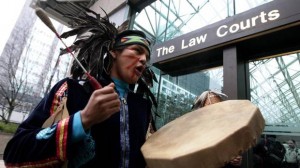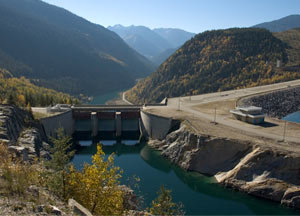Coming from a third world country where corruption within businesses is an understatement and workers rights are taken for granted. It hurts me how people prioritize making more money over a person’s health or ruining a child’s future by making them work instead of attending school in order to minimize costs. I am patriotic and love my country but it does not take a genius to see that the priorities are wrong. At times, I ask myself what is the cause of this selfishness? I eventually realize that it’s the community, the consumers of these products that put pressure on the producers; we do not consider how ethically the product is made and are not willing to pay extra money in order to promote companies who value corporate social responsibility. We are always looking for the cheaper alternative. After reading the article, “Starbucks announces fair trade offerings at universities across Canada,” published on 2/10/14 by Anthony Bianco; I realize there is hope for sustainable development and environmental protection. [1]
With Starbucks offering fair trade coffee to university students who are the budding leaders of tomorrow and making them aware of producers that meet standards for labor and environmental sustainability; makes them more willing to promote the fair trade movement. This will change businesses priorities from minimizing costs in order to increase profits to being ethically responsible in order to make higher profits, as it would become a standard for people purchasing products. A form of competitive advantage, as your products will be sold at a higher price than the market price and there would be demand for it. The consumers will also pride themselves over the fact that they bought a cup of coffee that has gone through the most ethical channels possible. This would lead to more pleasant people who are satisfied with the product they’ve purchased.
However, Is it enough to seat in Starbucks feeling self-righteous about the fair trade cup of coffee you are drinking?
It is true that Fair Trade is not the only measure of ensuring that slavery and exploitive labor practices are avoided but is just a step in the right direction. If it were promoted successfully it would become a standard for all companies and what is expected to survive in the industry. However people would eventually become used to the idea of Fair trade and in order for businesses to succeed they have to find other ways to involve consumers as social expectations are continually changing. Then they would have to find a shared value[2] to enhance their competitiveness but at the same time expand the pool of economic and social value. I believe that in the future firms will need to be more than “profit maximisers” to be successful as more people are becoming environmentally and socially responsible. Therefore to succeed business would have to be about the “people,” as firms will have to have a responsibility to society that goes beyond their responsibility to its shareholders.
Bibliography [1]
http://www.the-peak.ca/2014/10/starbucks-announces-fair-trade-offerings-at-universities-across-canada/
Bianco, Anthony. “Starbucks Announces Fair Trade Offerings at Universities across Canada.” The Peak RSS. N.p., 2 Oct. 2014. Web. 28 Oct. 2014.
[2]
http://www.waterhealth.com/sites/default/files/Harvard_Buiness_Review_Shared_Value.pdf
Porter, Michael E., and Mark R. Karmer. “Creating Shared Value.” Harvard Business Revies (2011): n. pag. Feb. 2011. Web. 28 Oct. 2014.





